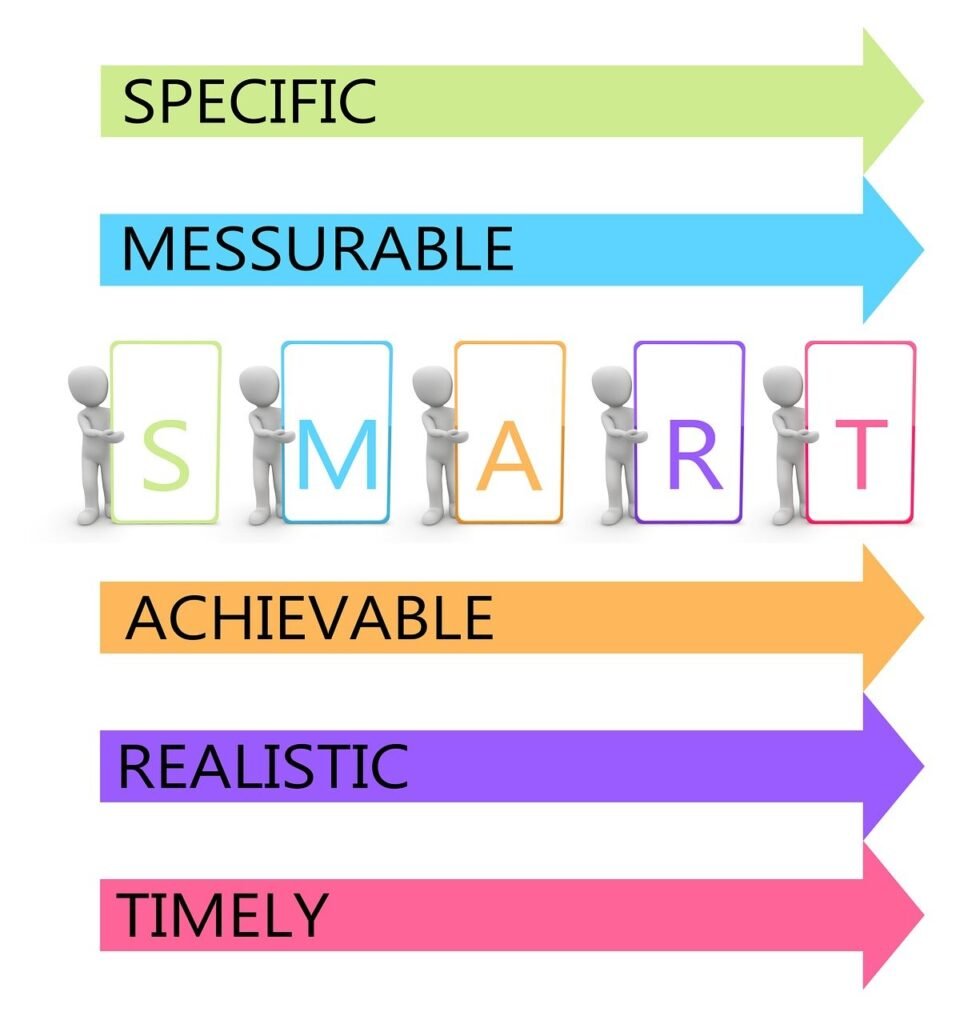What Is A Life Plan?
As an Amazon Associate, we earn from qualifying purchases
So you may be wondering, what is a life plan? Well, a life plan is essentially a roadmap that you create for yourself to outline your goals, aspirations, and the steps you need to take to achieve them. It’s like a personal GPS that guides you toward living a purposeful and fulfilling life.
Whether you come from a Catholic background or not, a life plan can help you navigate through the ups and downs of life, providing clarity and direction for your future endeavors. It’s a tool that empowers you to take control of your own destiny and make intentional choices that align with your values and beliefs.
What Is a Life Plan

Definition of a Life Plan
A life plan is a structured and deliberate approach to mapping out your goals, aspirations, and actions in various areas of your life. It serves as a roadmap that guides and empowers you to make intentional choices, prioritize your time and energy, and ultimately create a fulfilling and meaningful life.
A life plan provides clarity, direction, and focus, helping you align your values and priorities with your long-term goals.
Importance of Having a Life Plan
Having a life plan is essential for several reasons. Firstly, it helps you gain self-awareness and a deeper understanding of yourself and what truly matters to you.
It enables you to reflect on your values, passions, strengths, and weaknesses, allowing you to make more informed decisions about your life and the direction you want to take.
Furthermore, a life plan aids in establishing clear and achievable long-term goals. By breaking down these goals into smaller, manageable objectives, you can track your progress and stay motivated.
Without a life plan, you may find yourself drifting aimlessly without a sense of purpose or fulfillment.
A life plan also provides you with a framework for decision-making. When faced with choices and opportunities, you can refer back to your life plan to ensure that they align with your values and move you closer to your goals.
This helps you avoid distractions and make decisions that are in line with your priorities.
Creating a Life Plan
Self-Reflection
Before creating a life plan, it’s crucial to engage in self-reflection. Take the time to explore your core values, interests, and passions. Reflect on your strengths and weaknesses, as well as your personal and professional experiences. Understanding yourself on a deeper level will help you identify what truly matters to you and guide your decision-making process.

Identifying Values and Priorities
Once you have gained a better understanding of yourself, it’s important to identify your values and priorities. These are the guiding principles and areas of focus that shape your life choices.
They can include aspects such as family, career, personal growth, health, relationships, spirituality, and community involvement. By clarifying your values and priorities, you can align your actions and goals accordingly.
Setting Long-Term Goals
With your values and priorities in mind, it’s time to set long-term goals. These are the overarching objectives you aim to achieve in various aspects of your life.
Whether it’s advancing in your career, improving your health and well-being, or fostering meaningful relationships, setting clear and specific long-term goals provides you with a destination to work towards.
Breaking Down Goals into Short-Term Objectives
To make your long-term goals more manageable and achievable, break them down into short-term objectives. These are smaller, measurable milestones that you can work on within a defined timeframe.
Breaking down goals into bite-sized pieces increases your motivation and allows you to track your progress more effectively.
Developing Action Plans
Once you have identified your short-term objectives, it’s time to develop action plans. Action plans outline the specific steps and strategies you will take to achieve your objectives.
They help you create a roadmap of actionable tasks, deadlines, and resources needed to reach your goals. Developing action plans ensures that you have a clear path to follow and gives you a sense of direction and purpose.
Reviewing and Revising the Life Plan
Creating a life plan is not a one-time activity. It requires regular review and revision. Life is dynamic, and as you grow and evolve, your values, priorities, and goals may change. Regularly reviewing and revising your life plan allows you to make adjustments as needed and ensures that you stay aligned with your current aspirations and circumstances.
Benefits of Having a Life Plan
Clarity and Direction
One of the primary benefits of having a life plan is the clarity and direction it provides. When you have a clearly defined vision and goals, you can make decisions with confidence, knowing that they are aligned with your overall plan.
The clarity that comes from having a life plan empowers you to create a purpose-driven life and pursue your passions with focus.
Motivation and Focus
A life plan serves as a constant reminder of what you want to achieve in life. It provides you with motivation and helps you stay focused on your priorities. When faced with obstacles or distractions, referring back to your life plan can reignite your motivation and ensure that you stay on the path you have set for yourself.
Fulfillment and Satisfaction
By intentionally aligning your actions with your values and goals, a life plan allows you to live a more fulfilling and satisfying life.
When you are actively working towards goals that are meaningful to you, you experience a sense of purpose and accomplishment. This can greatly enhance your overall well-being and happiness.
Better Decision Making
Having a life plan aids in making better decisions. When faced with choices, you can evaluate them based on whether they align with your values and goals. This helps you avoid making impulsive or contradictory decisions that may lead you away from your desired outcomes.
A life plan provides a clear framework for decision-making, giving you a sense of confidence and certainty.
Implementing and Achieving a Life Plan
Taking Accountability
Implementing and achieving a life plan requires taking full accountability for your actions and choices. You are solely responsible for working towards your goals and putting in the necessary effort.
By embracing personal responsibility, you take ownership of your life and become the driver of your own success.
Building Support Systems
While personal accountability is crucial, it’s also essential to build a network of support systems. Surrounding yourself with individuals who share your values, goals, and aspirations can provide you with encouragement, guidance, and accountability.
Support systems can include mentors, friends, family members, or even professional coaches who can offer valuable insights and help you stay on track.
Overcoming Obstacles and Challenges
Achieving a life plan is not without its challenges. Obstacles, setbacks, and unexpected circumstances are bound to arise. However, with resilience and a problem-solving mindset, you can overcome these challenges and stay committed to your goals.
View obstacles as opportunities for growth and learning, and adapt your plans as necessary to navigate through them.
Examples of Life Plans
Career and Professional Life Plan
A career and professional life plan focuses on setting goals and objectives related to your professional growth and success. It may include aspirations such as attaining a specific position, gaining new skills, or starting your own business.
This life plan helps you establish a clear trajectory for your career, ensuring that you make deliberate choices and take steps toward professional fulfillment.
Personal Development Life Plan
A personal development life plan centers around improving and nurturing various aspects of your personal growth. It may include goals related to self-improvement, personal relationships, emotional well-being, or pursuing new hobbies and interests.
This life plan promotes continuous learning, self-reflection, and personal fulfillment.
Health and Wellness Life Plan
A health and wellness life plan focuses on setting goals and actions to enhance your physical, mental, and emotional well-being.
It may include objectives such as maintaining a balanced diet, adopting an exercise routine, reducing stress levels, or pursuing activities that promote self-care. This life plan prioritizes self-care and empowers you to lead a healthy and balanced lifestyle.
Financial and Wealth Life Plan
A financial and wealth life plan involves setting goals and strategies for achieving financial stability, security, and growth. It may include objectives such as budgeting, saving for retirement, investing, or starting a business.
This life plan helps you make sound financial decisions and ensures that you are actively working towards long-term financial freedom and abundance.
Life Plan vs. Goal Setting
Differentiating Between Life Plan and Goals
While often used interchangeably, a life plan and goal setting are not the same thing. A life plan is a comprehensive framework that encompasses various key areas of your life and incorporates multiple goals within each area.
It provides a holistic and long-term vision for your life, addressing not only specific goals but also the values and priorities that guide your choices.
On the other hand, goal setting is a process of establishing specific, measurable, achievable, relevant, and time-bound (SMART) objectives that contribute to your overall life plan. Goals are the building blocks of a life plan, serving as milestones and markers of progress toward your larger vision.
How Goals Fit into a Life Plan
Goals are the actionable steps that propel you forward in your life plan. They provide you with tangible targets to strive for, ensuring that you stay motivated and on track. By breaking down your life plan into smaller, focused goals, you can make steady progress and measure your successes along the way.
Goals serve as a roadmap and help you implement your life plan in a systematic and achievable manner.
Life Planning Tools and Techniques
Vision Boards

A vision board is a visual representation of your life plan and goals. It consists of images, quotes, and affirmations that inspire and motivate you. Creating a vision board allows you to visualize your aspirations, making them more tangible and real.
By regularly looking at your vision board, you can reinforce your goals and keep them top of mind.
Mind Mapping
Mind mapping is a technique that helps you brainstorm and visually organize your thoughts and ideas. It involves creating a diagram or flowchart that connects different concepts and objectives related to your life plan.
Mind mapping allows you to see the relationships between different areas of your life and aids in developing a coherent and comprehensive life plan.
SMART Goals
SMART goals are specific, measurable, achievable, relevant, and time-bound objectives. This goal-setting framework ensures that your goals are well-defined, trackable, and in alignment with your life plan.
By making goals SMART, you increase your chances of success and hold yourself accountable for their achievement.
Journaling
Journaling is a powerful tool for reflection, self-discovery, and tracking your progress towards your life plan. By regularly writing in a journal, you can document your thoughts, experiences, and insights.
Journaling helps you gain clarity, process emotions, and stay connected to your goals and aspirations. It can serve as a valuable record of your growth and journey towards a fulfilling life.
Life Planning Resources
Books and Literature
Numerous books and literature are available to guide you in creating and implementing a life plan. Some notable titles include “The 7 Habits of Highly Effective People” by Stephen R. Covey, “Designing Your Life” by Bill Burnett and Dave Evans, and “The Life Plan” by Shannah Kennedy.
These resources offer valuable insights, strategies, and exercises to help you develop a comprehensive life plan.
Websites and Online Resources
Various websites and online resources provide tools, templates, and guidance for creating a life plan. Websites like Mind Tools, Lifehack, and Live Bold and Bloom offer articles, worksheets, and interactive tools to support your life planning journey.
These resources can assist you in gaining clarity, setting goals, and formulating action plans.
Workshops and Seminars
Attending workshops and seminars focused on life planning can provide a structured environment for developing your life plan. Professionals and experts in the field often lead these events, offering guidance, motivation, and practical strategies.
Workshops and seminars allow you to interact with like-minded individuals and gain valuable insights from experienced facilitators.
Life Plan Challenges and Limitations
Uncertainty and Change
Life is unpredictable, and despite careful planning, unexpected events or circumstances may arise that challenge your life plan. It’s important to acknowledge and embrace the uncertainty that comes with life and be willing to adapt your plan as needed. Flexibility and the ability to adjust to change are essential skills when implementing a life plan.
Fear of Failure
The fear of failure can sometimes hinder progress when it comes to achieving a life plan. Setting ambitious goals and taking risks can be intimidating, and the fear of not reaching your desired outcomes may discourage you from moving forward.
Overcoming the fear of failure requires resilience, self-belief, and a growth mindset. Embrace failure as an opportunity to learn and grow, and keep pushing forward towards your goals.
Limited Control over External Factors
While a life plan helps you navigate your personal choices and actions, there are external factors beyond your control that may impact your progress. Economic conditions, societal changes, or unexpected events can influence the realization of your goals.
It’s important to maintain flexibility and adaptability when faced with external factors and make the necessary adjustments to stay aligned with your life plan.
Balancing Flexibility and Rigidity
Striking a balance between flexibility and rigidity is essential when implementing a life plan. While it’s important to remain adaptable and open to change, it’s also crucial to maintain discipline and stay committed to your goals.
Being too rigid can lead to frustration and burnout, while being too flexible may result in drifting without clear direction. Find a balance that allows you to embrace opportunities and make necessary adjustments without compromising your core values and long-term objectives.
Maintaining and Updating a Life Plan
Regular Assessment and Evaluation
To ensure the continued relevance and effectiveness of your life plan, regular assessment and evaluation are essential. Schedule regular intervals to review your progress, reflect on your achievements, and identify areas that may need adjustment.
By consistently assessing your life plan, you can make necessary refinements and ensure that it remains aligned with your evolving values, priorities, and goals.
Adapting to Life Changes
Life is dynamic, and as you grow and experience new opportunities and challenges, your life plan may need to evolve accordingly. Embrace change and be open to adjusting your goals and action plans as necessary.
Recognize that life is a journey, and your life plan is a living document that can be adapted to reflect your changing circumstances and aspirations. The key is to remain flexible and open-minded while staying true to your core values and overall vision.
In conclusion, a life plan provides a roadmap for intentional living and personal fulfillment. By engaging in self-reflection, identifying values and priorities, and setting long-term goals, you can create a comprehensive plan that guides your choices and actions.

Implementing a life plan requires accountability, support systems, and resilience to overcome obstacles and challenges. Various tools and techniques, such as vision boards, mind mapping, and SMART goals, can aid in creating and implementing a life plan.
Books, websites, workshops, and seminars provide additional resources for guidance and inspiration. While there may be challenges and limitations, regularly maintaining and updating your life plan ensures its relevance and alignment with your changing life circumstances. Embrace the power of a life plan to lead a purposeful, fulfilling, and meaningful life.






